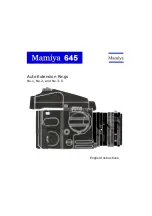
17
Trigno
TM
EMG System
Specifications
Typical Operating Range
(1)
20 m
RF Frequency Band
2400-2483 MHz (ISM band)
Power Consumption
<65 mW
Effective Radiated Power
9 mW
RF Protocol
Proprietary
Enclosure Dimension (main sensor)
27 x 37 x 15 mm
MiniHead Dimension
25 x 12 x 7 mm
Head Cable Length
200 mm
Full-charge Operation Time
(2)
7 hours (typical)
Recharge Time
(3)
<2.5 hours
Auto Shut-down timer
300 seconds
Temperature Range
(4)
5 - 40 degrees Celsius
Signal Range
11 mV (r.t.i)
EMG Channel Bandwidth
20 ± 5 Hz, >40 dB/dec
850 ± 100 Hz, >80 dB/dec
ACC Channels Bandwidths
DC - 50 ± 5 Hz, 20 dB/dec
EMG Channel Sampling Rate
2000 samples/sec, 1925.93 samples/sec*
Accelerometer Sampling Rate
148.1 samples/sec/axis
EMG Channel Resolution Depth
16 bits
Accelerometer Resolution Depth
10 bits
EMG Channel Noise
(5)
<0.75 uV (rms), r.t.i.
Accelerometer Range
± 1.5g, ± 6g
Accelerometer Noise
0.007g (rms, ± 1.5g)
0.024g (rms, ± 6g)
Accelerometer Offset Error
±0.201g (XY, 1.5g)
+0.201g / -0.343g (Z, 1.5g)
±0.052g (XY, 6g)
+0.052g / -0.088g (Z, 6g)
(1) Range is characterized in open office environments. Interfering RF sources in the 2.4 GHz spectrum,
as well as absorptive objects occluding the RF communication path may degrade transmission dis-
tance. Stated range can be exceeded under favorable RF conditions.
(2)
Battery duration is a function of charge and discharge conditions. Optimal battery performance is
obtained when the device is operated at room temperature. Note that the stated Operation Time
reflects the expected performance of a fully charged new battery used in a sensor that is transmitting
data. Operation Time is expected to decrease as a function of charge cycles, and when the sensor is
searching for a network.
(3)
80% of original battery capacity is maintained after 300 discharge/recharge cycles or after 2 years if
recharge cycles are less than 300. These values represent typical expectations under normal condi-
tions. Actual performance will vary depending on usage conditions.
(4)
Operation beyond these temperature limits may damage the rechargeable battery.
(5)
Input-referred noise is calculated as a root mean square over a 3 second window sampled at 1926 kHz.


































